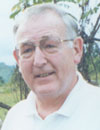16 Aug On This Day in UB History: August 16 (Sierra Leone)
When the 1900s began, the field superintendent in Sierra Leone was Rev. D. F. Wilberforce, a Sierra Leonean. He was replaced in November 1900 by an American, and missionaries held that role right up until 1985. Jerry Datema had been field superintendent until being elected bishop in 1981. He was determined, as bishop, to put Sierra Leoneans in charge of our oldest mission field.
Hong Kong and Nicaragua conferences had never had missionaries. Jamaica Conference was now under national leadership, and Honduras Conference would be there in a couple years upon the retirement of Archie Cameron.
“In Sierra Leone I believe the time has come for more nationalization,” Bishop Datema said in 1983. “We have to give the nationals more responsible positions and let them make some of the important decisions….I strongly feel that if we have nationals to do the job, it is wrong to be using missionaries.”
In August 1982, Bishop Datema appointed 15 Sierra Leoneans, plus missionary Ron Baker, to what he called the Future Planning Committee. He asked them to draw up their own proposals concerning the future of the field, looking 10-12 years down the road. They energetically jumped into the task under the chairmanship of John Labor, principal of Bumpe High School. They envisioned nationalizing all United Brethren work by 1996, with the possible exception of the hospital.
 Kyle McQuillen (right), then a United Methodist pastor, was recruited in 1983 to become the new field superintendent in Sierra Leone. He and his wife, Mar Louise, had previously served two years as UM missionaries in Nigeria. They flew to Sierra Leone in late December 1983. His main task was the lead the field toward nationalization.
Kyle McQuillen (right), then a United Methodist pastor, was recruited in 1983 to become the new field superintendent in Sierra Leone. He and his wife, Mar Louise, had previously served two years as UM missionaries in Nigeria. They flew to Sierra Leone in late December 1983. His main task was the lead the field toward nationalization.
McQuillen began meeting with the Future Planning committee, which had already been working for a year-and-a-half. Things quickly came together. A few missionary roles had already been turned over to nationals–the Education office, leadership in our many schools, the Christian Education department. Even the position of secretary to the field secretary.
The Future Planning Committee settled on a structure with three positions. The General Superintendent, as the spiritual leader and the highest administrative authority, would be the closest thing to the present field secretary. He would be joined by an administrative assistant, and a director of Evangelism and Stewardship.
The Sierra Leone church couldn’t afford three new fulltime persons. But McQuillen said it could work if his $11,050 salary remained on the field after his position ended. It would be enough to provide salary, housing, travel, and medical care for the three fulltime nationals. In addition, McQuillen figured the Missions board would save up to $10,000 in missionary-related expenses—family airfare, shipment of goods to and from the field, pension, Social Security, medical allowances, and children’s allowances.
In July 1984, McQuillen gathered all of the missionaries in Mattru. They spent three hours going over the detailed proposals from the Future Planning Committee, and fully agreed with the nationalization plan. But several wondered if the Board of Missions would accept the proposals.
The Board meeting was only a few weeks away, in mid-August. They knew that if the plans were to be implemented, action had to be taken at that meeting. Someone raised the idea of McQuillen attending in person. Field secretaries didn’t normally attend meetings of the Board of Missions–especially not after having been on the field for just nine months. But this was special, even historic. To show their united support, the missionaries agreed to pay McQuillen’s travel expenses out of their own salaries.
The day before McQuillen left, Dr. Ron Baker called him on the radio and told him of one more way the missionaries had agreed to show their support. Every missionary had signed up for one day of prayer and fasting during the seven-day period McQuillen would be gone.
On August 16, 1984, Kyle McQuillen gave his presentation to the Board of Missions. He covered all of the bases and answered every question. He said the Sierra Leone church currently had the personnel to make it work, and emphasized that unless his salary remained on the field, the proposals would have to be shelved.
They were convinced. The Board unanimously passed the nationalization plans. They also picked up McQuillen’s travel tab.
It was a quick trip for McQuillen. He arrived August 11, attended a week of meetings, and flew back August 18. Didn’t even stop to visit his Stateside children. But it was a successful trip—successful, in that it eliminated his own job.
In December 1984, Rev. Henry Allie, a Sierra Leonean pastor, was elected as the first national General Superintendent.

No Comments